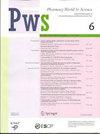IMPROVING THE PERFORMANCE PROPERTIES OF AUTOMOTIVE PARTS BY FORMING WEAR-RESISTANT COATINGS
引用次数: 0
Abstract
The work is devoted to solving the scientific and technical problem of ensuring the tribotechnical properties of car parts through the use of wearresistant coatings. The synthesis of the main types of wear of car parts and ways to improve their tribotechnical properties was carried out, which allowed to substantiate the feasibility of using wear-resistant coatings to restore and strengthen them.An urgent problem is the reasonable search and development of highly efficient, easy-to-use technologies for the restoration of parts to improve the performance of cars. Solving this problem requires the introduction into practice of strengthening and restoring car parts wear-resistant coatings. Summarizing the results of research on the main types of wear of car parts allowed us to conclude that they work in conditions where operating loads (pressure, temperature, environmental action, etc.) perceive mainly their surface layers, and therefore it is enough to restore not all parts but only worn surfaces by applying wear-resistant coatings.It has been proven that to improve the performance of car parts, it is important to choose the right simple and affordable ways to apply coatings that will increase their service life. It is substantiated that among the methods of applying wear-resistant coatings are the most common, cheapest and simplest methods of gas-thermal spraying, namely gas-flame spraying and electric arc spraying. Restoration and strengthening of car parts by applying wear-resistant coatings has solved the problem of providing their resource, which is not inferior to the resource of new parts.通过形成耐磨涂层来改善汽车零部件的性能
该工作致力于解决通过使用耐磨涂层来保证汽车零部件摩擦技术性能的科学技术问题。综合了汽车零部件的主要磨损类型和改善摩擦技术性能的方法,证实了使用耐磨涂层修复和强化汽车零部件的可行性。一个迫切的问题是合理寻找和开发高效、易用的零部件修复技术,以提高汽车的性能。解决这一问题需要将汽车零部件耐磨涂层的强化和修复引入实践。总结了对汽车零部件主要磨损类型的研究结果,我们得出结论,它们在工作负荷(压力、温度、环境作用等)主要感知其表层的条件下工作,因此,通过应用耐磨涂层来修复磨损的表面而不是所有零件就足够了。事实证明,为了提高汽车零部件的性能,重要的是选择正确的简单和负担得起的方法来涂抹涂层,这将增加它们的使用寿命。实践证明,在应用耐磨涂层的方法中,最常见、最经济、最简单的方法是气体热喷涂,即气体火焰喷涂和电弧喷涂。通过应用耐磨涂层修复和加强汽车零件,解决了提供其资源的问题,这并不亚于新零件的资源。
本文章由计算机程序翻译,如有差异,请以英文原文为准。
求助全文
约1分钟内获得全文
求助全文

 求助内容:
求助内容: 应助结果提醒方式:
应助结果提醒方式:


